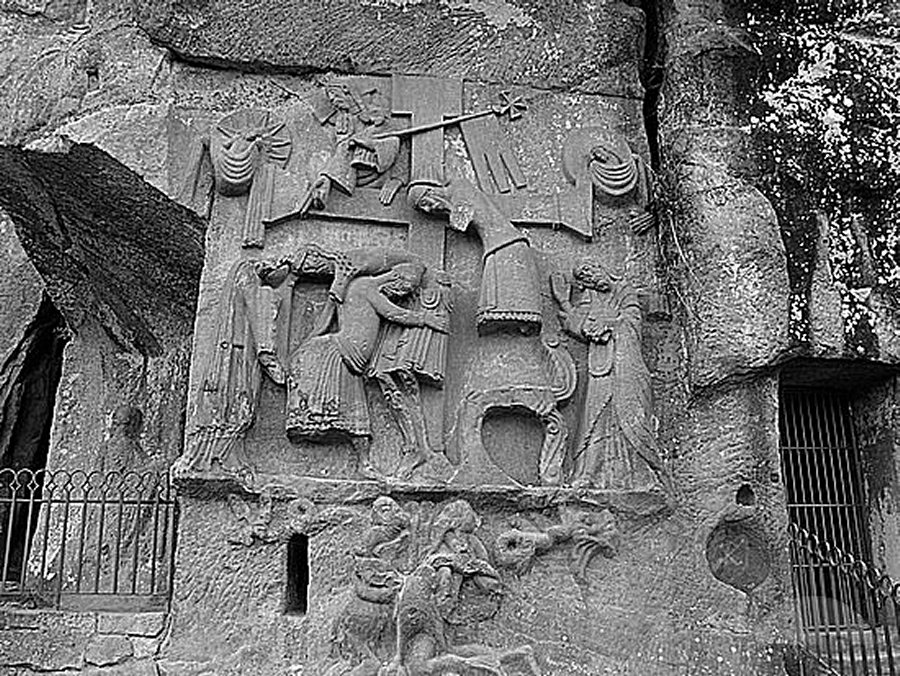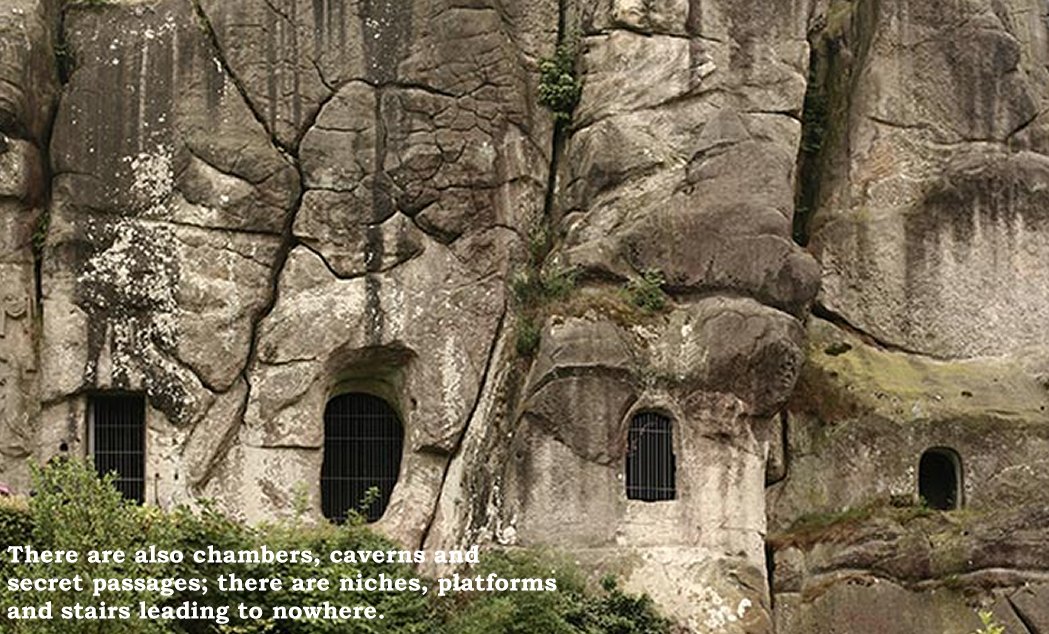MessageToEagle.com – Made of oddly twisted limestone rocks, Externsteine is located in the Teutoburg Forest north of the Rhine in Germany.
It was the place of heroic myths and legends about brave warriors of times long gone. Related to Scandinavian Eddas and Hitler’s persistent Aryan myth, the Teutonic cult center Externsteine, was also believed to be the site of the famous Yggdrasil – World Tree.
In the 1920s and 30s, the Nazi party used the Externsteine as the symbol of the German identity, but the history and importance of this sacred place goes much further back in time.
According to popular belief, the stones were placed there, at night by giants and they were there burned by the devil, which explains their grotesque and even scary appearance.
This spiritual sanctuary – with sharply outlined against the sky, uneven pillars, about 30 meters high – was once the subject of a fierce battle between the followers of pagan deities and the Christian monks.

In the spiritual tradition of the Germanic people, Externsteine played an important role similar to that of Stonehenge in England.
The Teutoburg Forest is surrounded with many prehistoric secrets and so is Externsteine bizarre rocky cluster.
All that is known about this place, especially its origin and meaning, turned out to be deceptive and uncertain. One theory has it, the site was used to many performed in the Stone Age; another suggests its religious functions date back no further than the 12th century.
Amongst tall rock outcrops, there are seen strange appearances of human faces and, mysterious shapes of mythical dragon-like creatures, all apparently formed accidentally by the cracks, fissures and bulges of the rocks.
See also:
Fragments Of A New Female Figurine From Hohle Fels Cave, Germany – Discovered
Secrets Of Mysterious Celtic Princess Of The Danube Revealed
9,000-Year-Old Shaman’s Sanctuary Discovered In North-Western Poland
Ancient Secrets Of Polish Ciemna Cave Inhabited By Humans 120,000 Years Ago
More Fascinating Ancient Mysteries
The Externsteine rocks are about 70-million-year-old sandstone spires with the remainsof a temple still recognizable on the top. This temple has definitely astronomical purpose because its rounded small windows slign with the sun and moon during the summer solstice.
According to astronomers, a part of the stones were used as an observatory.
There are also chambers, caverns and secret passages, later enlarged and modified by successive generations. There are niches, platforms and stairs leading to nowhere. No one can say, when the rocks were modified into the group of sanctuaries, tunnels and dead-end stairs.
In some of the chambers, researchers found several burn marks and dated to about 700 AD. About this time, the Externsteine was used by the non-Christian Teutonic people, but nothing is known about the motivation that brought these people to the site.
An opening in one of the chambers, is aligned to the midsummer sunrise, and on this particular morning, the sun’s rays directly illuminate a very ugly and mysterious face on the rear wall.
Many people who looked at this face, have a distinct feeling that the whole scenery has nothing to do with the medieval church and its activities but goes far back in time, many centuries before the Hellenistic Age had its beginnings.
While this curious face is unrecognizable, there are other features confirming that at the Externsteine, the ancient Celts once created an important sacred site and later, when the Celts left, the Teutonic people lived in the Teutoburg Forest; they added other features to the Externsteine.
Why is the place called “Externsteine”? No one knows; however, some researchers suggest it probably comes from the name of a neighboring mountainous area – “Egge”, which means “the stone of Egge”. There is also the first documented reference to this fascinating sacred place in old German texts dated to 1093 AD, which say it calls the “Agisterstein” – “the stone with the dragon cave”.
Copyright © MessageToEagle.com All rights reserved. This material may not be published, broadcast, rewritten or redistributed in whole or part without the express written permission of MessageToEagle.com
Expand for referencesReferences:
A. Gazin-Schwartz, C.J. Holtorf, Archaeology and Folklore
A. Kaulins, Stars, Stones and Scholars







